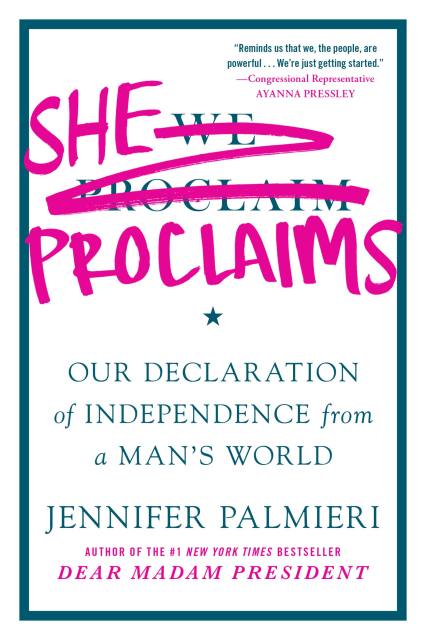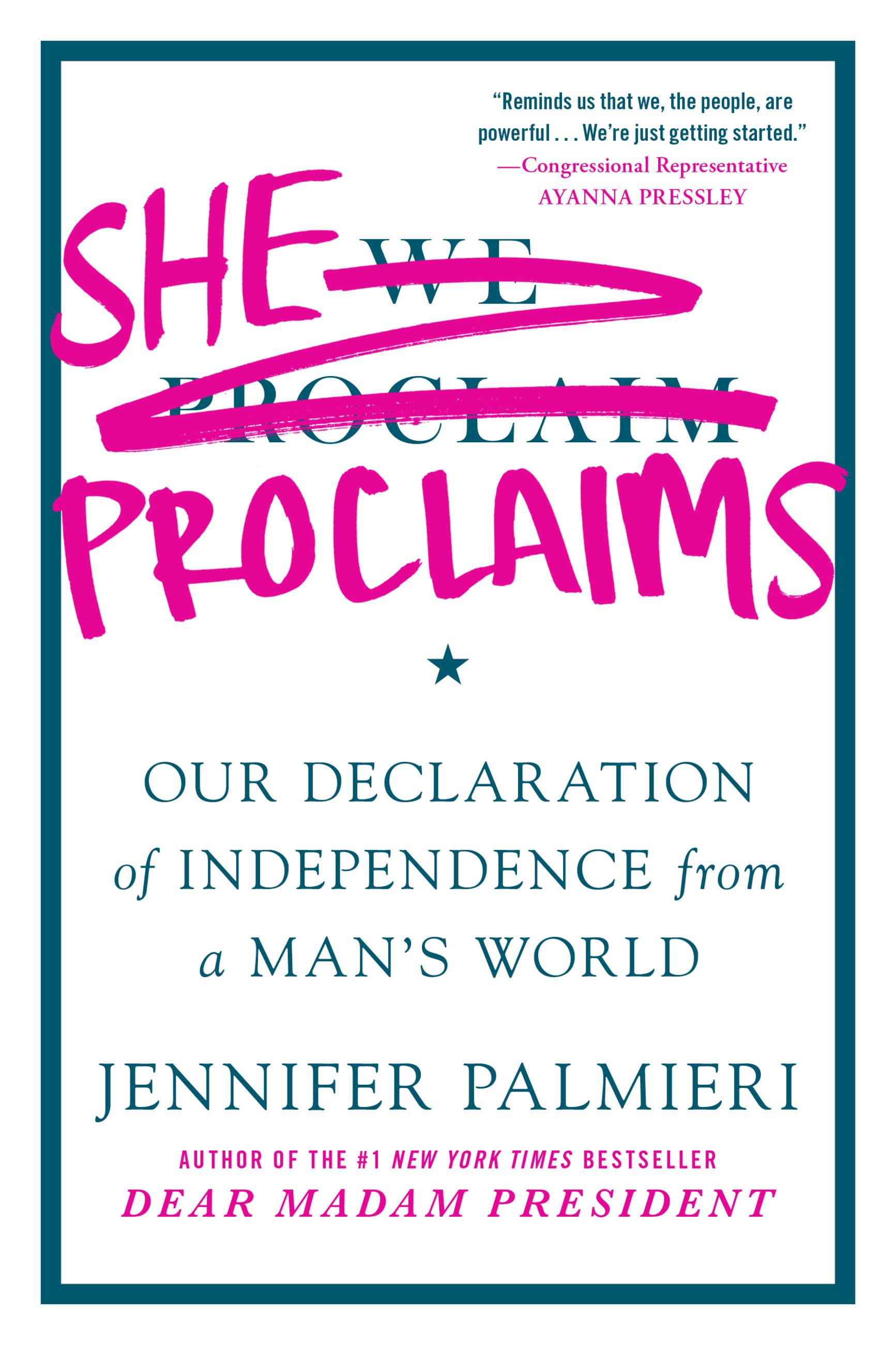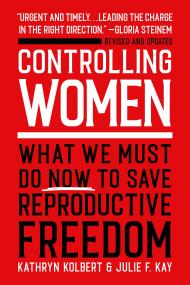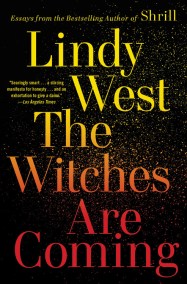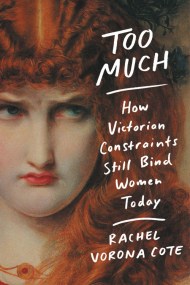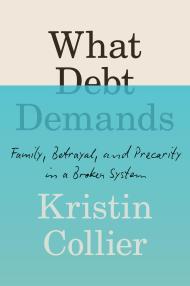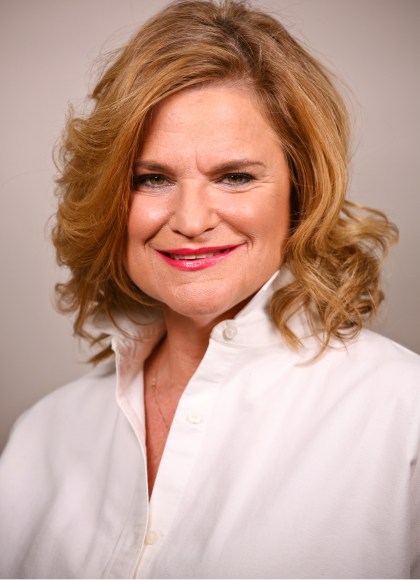By clicking “Accept,” you agree to the use of cookies and similar technologies on your device as set forth in our Cookie Policy and our Privacy Policy. Please note that certain cookies are essential for this website to function properly and do not require user consent to be deployed.
She Proclaims
Our Declaration of Independence from a Man's World
Contributors
Formats and Prices
- On Sale
- Mar 22, 2022
- Page Count
- 208 pages
- Publisher
- Grand Central Publishing
- ISBN-13
- 9781538750674
Price
$15.99Price
$21.99 CADFormat
Format:
- Trade Paperback $15.99 $21.99 CAD
- ebook $13.99 $16.99 CAD
- Audiobook Download (Unabridged)
This item is a preorder. Your payment method will be charged immediately, and the product is expected to ship on or around March 22, 2022. This date is subject to change due to shipping delays beyond our control.
Buy from Other Retailers:
Take action and shatter the glass ceiling with this empowering and optimistic feminist guide from the #1 New York Timesbestselling author of Dear Madam President.
In an era marked by a frustrating sense of stagnation for women, Jennifer Palmieri has found a way to move beyond the bounds of
patriarchy. Building on the lessons shared in Dear Madam President, Palmieri argues that women have gone as far as they can in a world made for men, and it is time to break from it.
She Proclaims declares what most women know in their souls but have yet to say out loud-that they deserve something better than a life where men hold a vast majority of power and women continue to be undervalued. It is a manifesto for the second century of feminism that no longer chases a man’s elusive path but proclaims the value, ambition, and emotion women have had all along to change their world by changing how they engage in it.
This book celebrates the accomplishments and history of the women’s movement, and through personal reflections and stories of other inspirational female leaders, Jennifer shares concrete advice and insights she’s learned from her journey out of a man’s world that will inspire you to boldly chart your own course in life.
patriarchy. Building on the lessons shared in Dear Madam President, Palmieri argues that women have gone as far as they can in a world made for men, and it is time to break from it.
She Proclaims declares what most women know in their souls but have yet to say out loud-that they deserve something better than a life where men hold a vast majority of power and women continue to be undervalued. It is a manifesto for the second century of feminism that no longer chases a man’s elusive path but proclaims the value, ambition, and emotion women have had all along to change their world by changing how they engage in it.
This book celebrates the accomplishments and history of the women’s movement, and through personal reflections and stories of other inspirational female leaders, Jennifer shares concrete advice and insights she’s learned from her journey out of a man’s world that will inspire you to boldly chart your own course in life.
-
Praise for She Proclaims:Congressional Representative Ayanna Pressley
"She Proclaims reminds us that we, the people, are powerful. And while we stand on the shoulders of those who have come before, as an intersectional ceiling shattering movement we're just getting started."
-
"She Proclaims skillfully and movingly uses the stories of women who fought for our right to vote more than a hundred years ago to inspire women in America today to believe in the righteousness of our cause, break from the constraints that have traditionally held women back, and make our own path that improves the world."Valerie Jarrett, former senior advisor to President Barack Obama and New York Times bestselling author of Finding My Voice
-
"Jennifer knows the fundamental truth: ambition is not a dirty word. Women must embrace their own ambition and dare to dream big. Women will do things differently, and that's a good thing. Together, we will break down the barriers standing in our way."Senator Kirsten Gillibrand
-
"She Proclaims delivers a rousing 21st century prescription for a path forward that refutes the notion of gender equality as a zero sum game. This is an essential crie de cour not only for all women who want to reach their full potential but for men who understand that systems of oppression ultimately defeat us all."Tony Goldwyn, actor
-
"She Proclaims is centered around the simple but profound recognition that the world as it is was never built for women. As women everywhere are realizing, the time for trying to retrofit ourselves to systems built by men and for men is over. As Jennifer writes, women have nothing left to prove; we are ready to build something better."Cecile Richards, former president of Planned Parenthood and New York Times bestselling author of Make Trouble
-
"Jennifer Palmieri guides us - women and men alike - into a deeper understanding of what true gender equality looks like. An empowering manifesto written with a generous spirit, She Proclaims provides us with new insight on women's past efforts, tools for the future, and inspiration for all of us to strive for the mutual empowerment that will benefit everyone."Connie Britton, actress
-
"Inspiring and invigorating, this brief, sharp call to action cries out for continued feminist action in order to create an American society based on 'equality for all.' A provocatively progressive declaration."Kirkus Reviews
-
"A spirited and accessible manifesto for women seeking to combat the patriarchy through both personal and collective action."Publishers Weekly
-
"In Dear Madam President, Palmieri addressed the hypothetical first female president of the U.S., guided by her experience as former White House communications director for President Obama and director of communications for Hillary Clinton's 2016 presidential campaign. Now she expands her audience, encouraging every woman to realize her power...It will especially appeal to readers who responded to Sheryl Sandberg's Lean In."Booklist
Newsletter Signup
By clicking ‘Sign Up,’ I acknowledge that I have read and agree to Hachette Book Group’s Privacy Policy and Terms of Use
